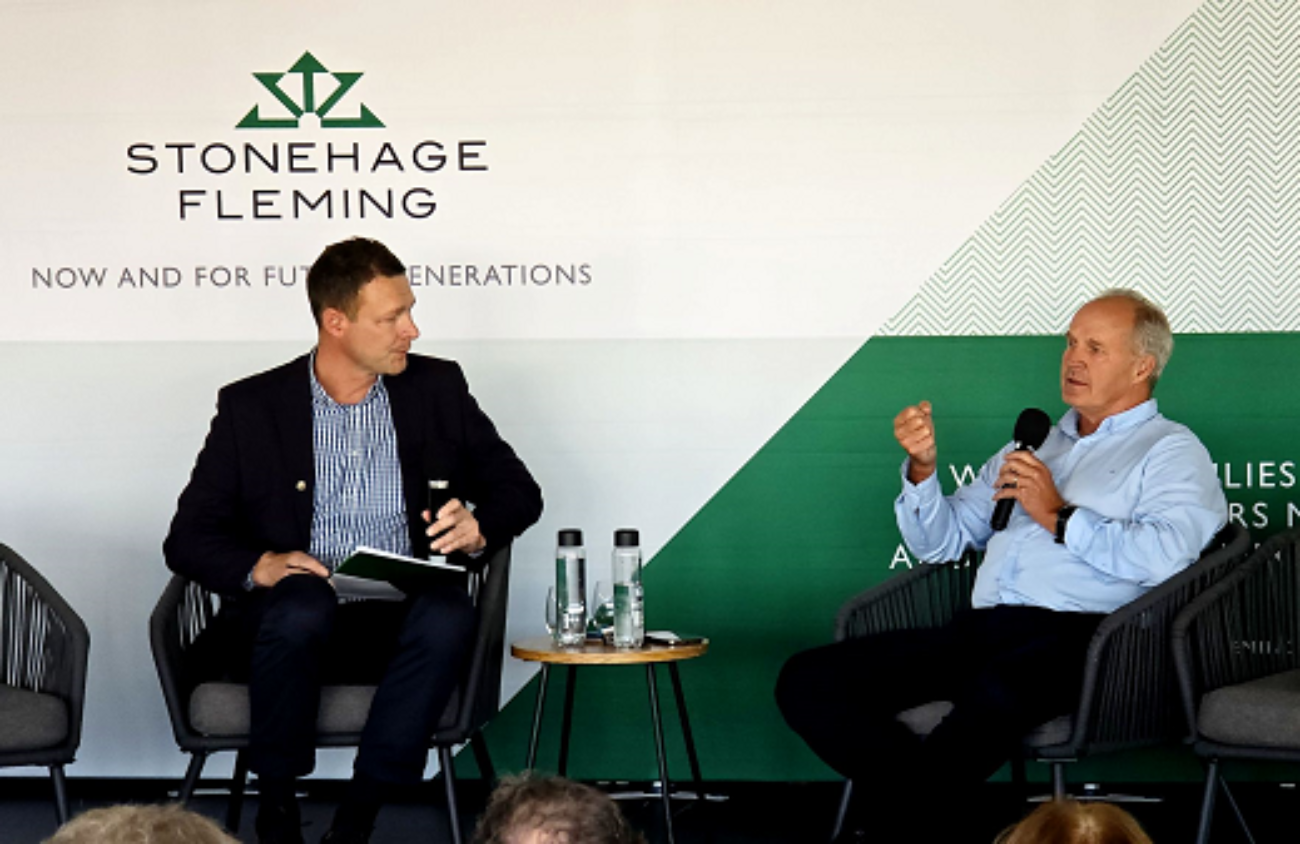Insights

By: Jean-Pierre Du Plessis
Building a banking giant: A conversation with Capitec's Gerrie Fourie
Building a banking giant: A conversation with Capitec's Gerrie Fourie
Gerrie Fourie, CEO of Capitec Bank, is one of South Africa's most respected business leaders and banking executives. At our recent annual Stonehage Fleming Investment Conference in Stellenbosch, Jean-Pierre du Plessis, Head of Equity Management SA, got the opportunity to sit down with Fourie and discuss how, under his leadership, Capitec has become South Africa's largest bank, serving over 23 million clients.
JP: What inspired you to leave a stable career at Stellenbosch Farmer's Winery to join Capitec in its early days?
Fourie: My passion has always been to start my own business. When asked to join Capitec in 2000, I had to choose between a secure career at SFW or pursuing something I truly loved – building something new. It was a significant leap of faith, but I believe you must follow your passion and execute on it.
JP: Capitec is known for its dynamic and transparent culture. How do you maintain this culture with 18,000 employees?
Fourie: Initially, we didn't explicitly define our culture – we just focused on doing business. Our fundamentals were affordability, accessibility, simplicity, and personal experience, which remain unchanged today. Around 2015/16, I realised we needed to establish an enduring culture that would survive beyond the founders. We developed the CEO principle: Client-obsessed, Energise and Inspire and Ownership. We want everyone to think like an entrepreneur or small business owner. It's about end-to-end client satisfaction and measuring everything we do. For instance, having the knowledge that it costs R10 per minute to service a client in a branch and R5 in a call centre and optimising based on that understanding.
JP: With your vast amount of customer data, you've mentioned becoming more of a data business. Could you elaborate on your IT strategy?
Fourie: In the first 18 years, we built our own IT systems. Then, we realised we needed to focus more on products. We use off-the-shelf technology solutions that are regularly upgraded. In doing so, we shifted the focus of our IT teams. Today, we have over 700 engineers ensuring our processes, products and client experience is constantly optimised. With 2.5 trillion data points on client behaviour, and with machine learning and AI capabilities, we’re evolving into a real data company that can deeply understand and serve the needs of our clients.
JP: How have challenges like the banking crisis and the pandemic shaped the business?
Fourie: There’s no playbook for handling such challenges. We focused on four key stakeholders: our clients, shareholders, the media, and our organisation. During COVID-19, we had daily executive committee meetings. While some decisions were wrong, we quickly corrected course. We cut expenses deeply and focused on growth strategies. Our value-added services actually emerged from this period, demonstrating how challenges can drive innovation. We now represent about 40% of the pre-paid data and airtime and 24% of the electricity market.
JP: Your acquisition of Mercantile Bank marked your entry into business banking. Why choose acquisition over building from scratch?
Fourie: When we decided to enter business banking, we initially planned to build it ourselves. However, the Mercantile opportunity emerged and offered a profitable base from which to build the business. What really excites me is the incredible potential in the township economy. We have about 400 branches across townships, and we see tremendous opportunity in this space. Just as we set out on the mission of banking the unbanked in Personal banking, we want to support Small, Medium and Emerging businesses, which are the backbone our economy, and empower them to grow.
JP: Looking ahead, what's your view on South Africa's economic future?
Fourie: I've never gotten caught up in doom and gloom. Despite challenges like high inflation, high interest rates, and our political challenges, I believe in staying positive and seizing opportunities. We're seeing increased cooperation between the private sector and government, which is encouraging. There are massive opportunities in emerging markets – 40% of that economy is informal, and by bringing them into the formal system, we can drive growth. Tourism also presents significant potential. If we can align everyone around the growth objective, the outlook becomes very positive.